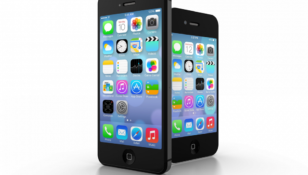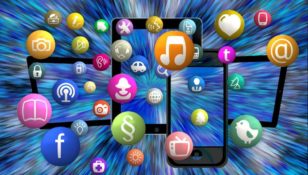Messenger App: Revolutionizing Communication in the Digital Age

Introduction
With the rapid advancement of technology, communication has transitioned from traditional forms to digital platforms. One such platform that has become an integral part of our lives is the Messenger App. This article aims to provide an in-depth understanding of Messenger Apps and delve into their historical development. Whether you’re a tech enthusiast or simply interested in staying connected, this article will equip you with the knowledge needed to navigate the world of Messenger Apps confidently.
Understanding Messenger Apps: The Basics

Messenger Apps, also known as instant messaging applications, are software programs designed for real-time communication between individuals. They enable users to exchange text messages, voice recordings, images, videos, and even make audio or video calls. These apps have revolutionized the way people connect, making geographical boundaries virtually disappear.
Key Features and Benefits of Messenger Apps:
1. Instant Messaging: Messenger Apps facilitate instant text-based conversations, allowing real-time communication regardless of distance. This feature offers convenience and helps foster quick decision-making.
2. Multimedia Sharing: Users can share various media files like photos, videos, and documents effortlessly. Messenger Apps act as a one-stop platform for exchanging rich media content, enhancing communication experiences.
3. Group Chats: Messenger Apps empower users to create group chats, enabling seamless communication among multiple individuals or teams. This feature is ideal for social gatherings, professional collaborations, and sharing information with a larger audience.
4. Voice and Video Calls: Messenger Apps provide the ability to make voice and video calls, bridging the gap between loved ones or business associates who are physically apart. This functionality has become particularly significant during the global pandemic.
Historical Development of Messenger Apps
Messenger Apps have come a long way from their humble beginnings. Let’s take a journey back in time to understand their evolution:
1. SMS Era: Before the rise of dedicated messaging apps, Short Message Service (SMS) dominated the scene. Users were charged per text message, and the 160-character limit challenged communication efficiency.
2. AOL Instant Messenger (AIM): In 1997, AOL launched AIM, a groundbreaking messaging service that allowed users to exchange instant messages over the internet. AIM became wildly popular, setting the stage for the future of messaging apps.
3. BlackBerry Messenger (BBM): Introduced in 2005, BBM offered secure messaging exclusively for BlackBerry users. It gained immense popularity globally and became a status symbol for smartphone owners.
4. WhatsApp: In 2009, WhatsApp emerged, revolutionizing the instant messaging landscape. It pioneered the concept of using the internet for message exchange, eliminating SMS charges. WhatsApp introduced features such as multimedia sharing, voice calls, and end-to-end encryption.
5. Facebook Messenger: Facebook launched Messenger as a standalone mobile app in 2011, reinforcing its dominance in the social media sphere. It integrated seamlessly with Facebook, allowing users to connect with friends using the platform.
6. WeChat: Originating in China in 2011, WeChat quickly expanded its user base globally. It introduced features such as social commerce, mini-programs, and mobile payment services, transforming it into a super-app.
7. Telegram: Launched in 2013, Telegram focused on privacy and security. It gained popularity due to its self-destructing messages, secret chats, and strong encryption protocols.
The Rise of Messenger Apps: A Global Influence
Messenger Apps have witnessed exponential growth over the years, becoming an integral part of our daily lives. The following factors have played a crucial role in their rise:
1. Mobile Revolution: The advent of smartphones and the subsequent increase in internet penetration played a significant role in the popularity of Messenger Apps. As smartphones became more affordable and accessible, the demand for instant communication soared.
2. Social Integration: Messenger Apps seamlessly integrated with social media platforms, allowing users to connect with friends, family, and even businesses. The ability to consolidate various aspects of communication under one platform made Messenger Apps appealing and convenient.
3. Platform Innovation: Messenger apps continuously evolve by introducing new features that cater to user needs. The addition of voice and video calls, animated stickers, and file-sharing capabilities has enhanced the overall user experience.
4. Embracing Global Connectivity: Messenger Apps transcend language barriers and cultural differences, making it easier for people to communicate across the globe. This global connectivity fosters cross-cultural exchanges and promotes understanding.
Conclusion
In conclusion, Messenger Apps have revolutionized communication, giving individuals the power to connect effortlessly across distances. From humble beginnings, these apps have evolved and adapted to the ever-changing landscape of technology. With their robust features, convenience, and accessibility, Messenger Apps empower users to stay connected in the digital age. As technology continues to advance, it’s exciting to speculate on the future innovations that will shape the world of communication even further. So let’s embrace the possibilities, and keep messaging!

















